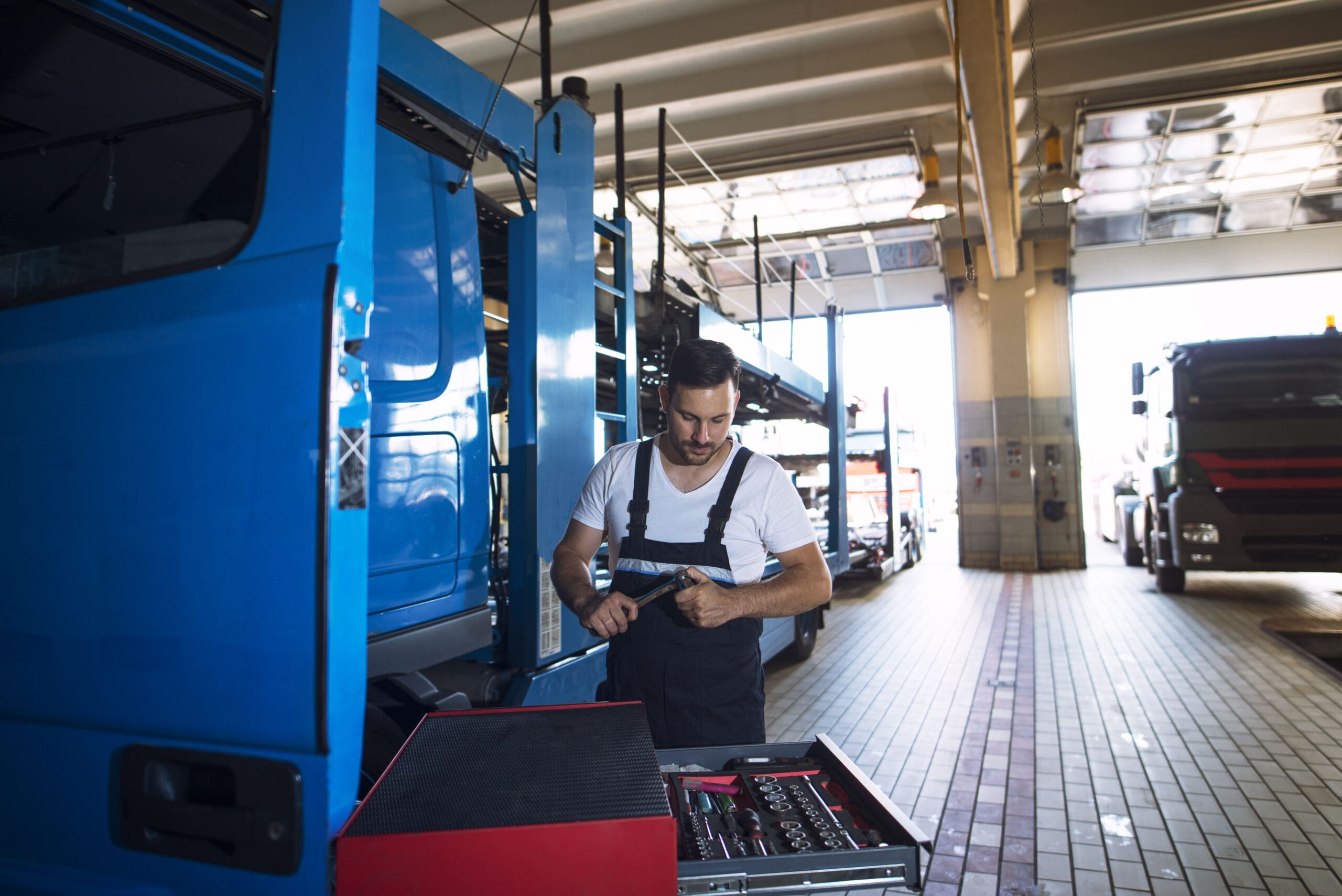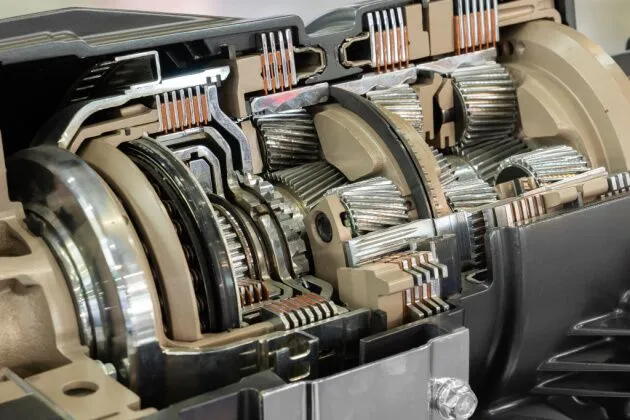Top Tips to Prevent Blowouts and Extend the Life of Your Truck Tires
Day in and day out, tires take a beating from rough roads, long hauls, and heavy loads—all while making sure your business stays on the move. But let’s be honest—how often do you really think about your truck’s tires? Probably not until something goes wrong, right? And when it does, it’s never convenient. A blown tire can leave you stranded, cost you in repairs, and throw a wrench in your schedule.
The good news? Taking care of your truck and trailer tires doesn’t have to be complicated, but a little bit of attention can go a long way in extending their lifespan and preventing those dreaded blowouts. So, let’s break down some proven, practical maintenance tips that can help boost the life of your tires, keep your rides smoother, and ultimately save you time and money.
1. Keep Tire Pressure in Check
Let’s start with the basics: tire pressure. It’s something many truckers overlook, but it plays a massive role in how long your tires last. Under-inflated tires cause more contact with the road, creating more friction and heat—this wears out the rubber faster and increases the chance of a blowout. On the other hand, over-inflated tires can make for a rougher ride and increase the risk of a tire rupture when hitting a bump or pothole.
Find the Right Pressure
Every truck is different, so it’s crucial to check the manufacturer’s recommendation for the right pressure level (usually listed on the driver’s door sticker or in the manual). Commercial trucks often require anywhere from 80 to 120 PSI, depending on the load and type of tires. But remember, if you’re carrying a heavier load, you’ll need to adjust the tire pressure accordingly.
Get a Good Pressure Gauge & Check Regularly
Invest in a quality tire pressure gauge. Cheap gauges can be inaccurate, leading you to under or over-inflate your tires without realizing it. Make checking your tire pressure part of your weekly routine—set a reminder if you need to. And don’t just check them when they’re warm from driving; tires should be checked when they’re “cold” (when they haven’t been driven for at least a few hours) to get an accurate reading.
Pro Tip: Temperature changes can affect tire pressure—so if you’re driving through areas with fluctuating climates, keep an extra close eye on those readings.
2. Rotate Tires Regularly for Even Wear
Rotating your truck tires is key to extending their lifespan. Why? Because different tires wear down at different rates depending on their position on the vehicle and the load distribution. By rotating them, you can ensure more even wear, which helps maintain consistent traction and reduces the chances of uneven tire balding or damage.
When and How to Rotate Tires
It’s a good idea to rotate your tires about every 6,000 to 8,000 miles, but it can vary depending on the make of your truck and how heavily you’re hauling. A good rule of thumb is to rotate them every time you change the oil—that way, it’s easier to remember. The typical rotation pattern for trucks and trailers is front-to-back or cross-rotation (switching left tires to the right side, and vice versa), but it’s always best to follow your manufacturer’s guidelines.
Don’t Forget Trailer Tires
Truckers sometimes forget about trailer tires. These tires often wear out quicker due to their constant contact with the load. To maximize their life, make sure your trailer tires are rotated just as regularly as the ones on your truck.
Quick Note: If you notice any irregular wear patterns, it could be a sign of a suspension issue or misalignment—better to catch it early before it leads to major tire damage.
3. Inspect Tires for Wear and Tear
You wouldn’t drive around with a cracked windshield, right? Well, your tires deserve that same level of attention. Inspecting your tires regularly is essential to prevent a blowout before it happens. And while it may sound obvious, you’d be surprised how many truckers skip this step.
Check for Tread Depth
Tread depth matters more than you think—it’s what gives your tires the grip they need on the road. If the tread’s worn down too much, the tire can’t do its job, and your stopping distance increases (especially on wet roads). A tread depth gauge will help you measure the remaining tread on your tires; most commercial tires need at least 4/32 of an inch on the steering axle and 2/32 of an inch on other axles to be considered safe.
Watch for Signs of Damage
Look for cuts, cracks, bulges, punctures, or exposed steel belts on your tires. Any of these can indicate a compromised tire and should be fixed or replaced ASAP. Also, check the sidewalls for any irregular wear, which could be a sign of under-inflation, over-inflation, or misalignment.
Pro Tip: Don’t just inspect the outside. Roll the truck forward a bit and check the part of the tire that’s touching the ground. It’s easy to miss damage if you’re only checking the visible part.
4. Align Your Wheels for Smooth Driving
A proper wheel alignment is critical to making sure your tires wear evenly and last longer. Poor alignment can lead to tires “scrubbing” or dragging on the road, which can cause rapid and uneven tread wear. If you feel your truck pulling to one side while driving or notice an odd vibration in the steering wheel, it’s time to check the alignment.
When to Get an Alignment Check
It’s a good idea to get your alignment checked every time you rotate your tires or if you hit a big pothole or curb that knocks the truck around. Regular alignments can also help save fuel (since aligned wheels have less rolling resistance) and make for a smoother, safer ride.
5. Balance Tires for an Even Ride
A balanced tire is a happy tire. Balancing is all about ensuring the tire and wheel assembly weight is evenly distributed. If your tires aren’t balanced, they can wear unevenly, cause vibration, and put stress on your suspension.
Spot the Signs of Unbalanced Tires
If you’re feeling a vibration in the steering wheel, floor, or seat while driving, especially at higher speeds, that’s a red flag for tire imbalance. It’s wise to balance your tires whenever they’re rotated or whenever you replace a tire.
Pro Tip: Don’t wait until you “feel” something is off. Regularly balancing your tires can prevent a lot of potential wear and tear down the road.
6. Avoid Overloading Your Truck or Trailer
Yes, trucks are built to carry heavy loads, but there’s a limit to what they can handle safely. Overloading puts extra stress on your tires, making them wear down quicker and increasing the risk of a blowout. Plus, it can mess with your fuel efficiency and lead to suspension damage.
Know Your Load Limits
Check your truck’s Gross Vehicle Weight Rating (GVWR) and make sure you’re not exceeding it. Even if it means making an extra trip, staying within the limits helps prolong the life of your tires and keeps you safe.
7. Store Spare Tires Properly
Spare tires need love too. If you’re carrying a spare, make sure it’s stored in good condition—away from direct sunlight, extreme temperatures, and chemicals that could cause the rubber to break down. And remember, just because it’s a spare doesn’t mean you can ignore its condition. Check the pressure and inspect for any damage regularly.
Pro Tip: Rotate your spare tire in with your regular tires during rotations so that they all wear evenly over time.
8. Stay on Top of Repairs and Replacement
Tires won’t last forever, and that’s okay. Even with proper care, commercial truck tires have a lifespan of 3-6 years or around 100,000 to 150,000 miles. Once you start to see the signs of serious wear or damage, it’s time to replace them. Holding onto worn-out tires only puts you at greater risk for blowouts, which can be costly in more ways than one.
Choose the Right Tires for Your Needs
If it’s time to replace your tires, invest in the right type for your truck and load requirements. Long-haul tires, regional tires, and off-road tires all have different purposes and features—so make sure you pick the one that fits how and where you drive.
Final Thoughts:
Taking care of your truck and trailer tires isn’t exactly the most glamorous part of being on the road, but it is worth the effort. Regular tire maintenance—checking pressure, rotating, inspecting, and aligning—can extend tire life, improve fuel efficiency, make driving safer, and save you money by preventing blowouts.
How AP Truck Repair Can Help
AP Truck Repair has your back when it comes to tire care and maintenance. We are experts in truck tires, from proper pressure checks and rotations to wheel alignment and balancing. Our professional services will help you stay on top of any tire issues before they become costly problems. If you need quick repairs, routine tire inspections, or a full replacement, we’re equipped to keep your truck safe, smooth, and efficient on the road.



